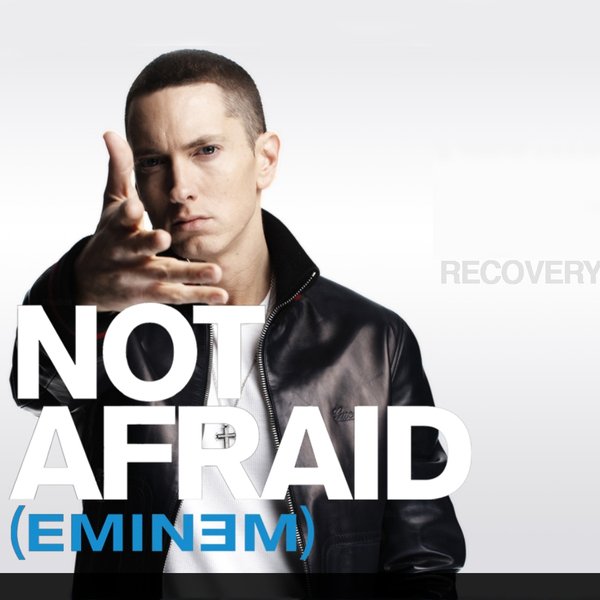
The best tracks on the album delve into Eminem's troubled psyche. he's always snappin at you/Marshall, what's happened that you/can't stop with these pills and your fallin off with yer skills and your own fans are laughing at you?" On the gripping "Going Through Changes," Eminem depicts a his miserable existence: grief-stricken over the killing of rapper and best friend Proof addled by drugs and hating what he's become - while his daughter watches his decline. But on "Recovery," he gets more even personal, which makes his stories even more striking and heartfelt. Just as he did with a few songs on "Relapse," Eminem details his painful battle with drug abuse with harrowing detail.

There is also more of Marshall Mathers than we've ever seen before on "Recovery" - and that's a good thing. What Eminem goes back to are the best elements that made him such a groundbreaking rapper when he made his debut over a decade ago: sick but hilarious humor clever, biting lyrics and great storytelling. For Eminem, that meant an album that consisted mostly of tired insults and violent imagery without any of the wit that once accompanied it, making it charmless, humorless and forgettable.Įven Eminem acknowledges as much on "Recovery," taking potshots at an album he now calls "trash" on "Not Afraid," he says, "Let's be honest that last Relapse CD was ehh/perhaps I ran them accents into the ground, relax/I ain't goin' back to that now." "Relapse" was a painful listen, with Eminem trying to recapture his former glory after four years off battling drug addiction. The arresting video starring Megan Fox and Dominic Monaghan didn’t hurt, either.Eminem's latest album is called "Recovery," but a better title might have been "Resurrection." On his seventh studio release, Eminem has finally returned to form, which is to say he's obnoxious, misogynistic, violent and often hurtful, but through it all, rarely short of brilliant.Īfter his last album, 2009's "Relapse," many wondered whether rap's most successful and perhaps most talented rapper would ever do anything to merit the tag "brilliant" again. Besides, the millions who concluded that Eminem was in a wiser, more serious phase of his life after hearing “Not Afraid” were primed to embrace him for addressing this topic - far outnumbering people like me, who found Em’s treatment of these issues jarringly shallow. Even if you were tired of hearing Eminem rap about his own abuse-warped relationships for 10 years straight, chances are you didn’t feel the same way about Rihanna (presumably) singing about hers. That unrepeatable combination made this song impossible to ignore. “Love the Way You Lie” is a cautionary tale about domestic violence, with a chorus sung by perhaps the single most famous recent survivor of real-life domestic violence. Nor was this some random guest feature for its own sake (like, say, teaser track “Won’t Back Down,” whose head-banging guitar riffs and Pink hook added rock as well as pop appeal to the mix). By enlisting a mainstream marquee name as his collaborator, Eminem repeated one of his signature moves from the old days, getting his single played on pop and rap radio at once. That Rihanna duet is far from my favorite song on Recovery, but it was a fiendishly smart choice for a second single. People who felt they’d outgrown the nasty, juvenile aspects of Eminem’s earlier work might get the impression that he had, too. The guy who used to flaunt his uniquely twisted personality seemed to have matured into an empathetic everyman, someone capable of seeing his own faults and forgiving yours. “We’ll walk this road together, through the storm/Whatever weather, cold or warm/Just lettin’ you know that you’re not alone/Holla if you feel like you’ve been down the same road.” Not even 2002’s “Lose Yourself,” the clearest antecedent in Eminem’s catalog for this kind of inspirational talk, had gone so far. “Everybody, come take my hand,” he sang-spoke. In case anyone missed that press release, he rejected his previous work even more emphatically: “Let’s be honest, that last Relapse CD was ehhhh.” The song’s anthemic hook made it clear what Em meant to replace all that with. I’ve since come to admire how succinctly it introduced Recovery‘s key talking points.

Two weeks later, Eminem expanded on this sales pitch with “Not Afraid.” At the time I was lukewarm on the single.


 0 kommentar(er)
0 kommentar(er)
